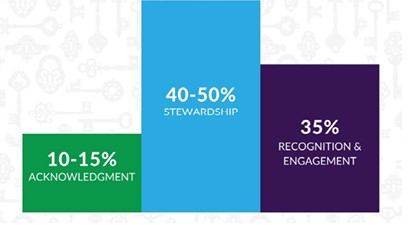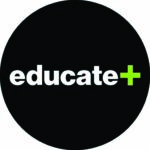
Top Takeaways from the 2024 Empowering Success Conference
With the intention of providing all New Zealand members with some topline takeaways from the 2024 Educate Plus Empowering Success International Conference in Perth, several attendees gathered online prior to this year’s NZ Chapter AGM and shared their insights from various conference sessions.
The video of the session can be viewed in the Knowledgebank resource centre on the Education Plus website. (Members will need to be logged in to access the Knowledgebank). To access the Top Takeaways from the 2024 Empowering Success Conference Webinar, CLICK HERE.
If you would like to discuss any of these sessions further, please reach out to any of the presenters who would welcome the opportunity to share their experiences further.
“Top Takeaways” were presented in a framework of the five key pillars of education Advancement.
- Fundraising and Donor Relations
- Marketing and Communications
- Alumni and Community Relations
- Leadership
- Admissions
Former Chapter President Vicki Fowler facilitated the session and shared with us that her enduring reflections of the Empowering Success Conference provided a healthy reminder that a Conference Experience should never be underestimated as a valuable opportunity to refresh, recharge, reunite and reset.
Vicki surmised that any Educate Plus Conference will always offer immense learning opportunities, and that mental health and well-being benefits are integrated into the overall conference experiences:
- connections with like-minded, kind and supportive colleagues and friends
- uplifting and inspiring sessions and interactions
- time spent in beautiful places and spaces away from our usual environments
FUNDRAISING AND DONOR RELATIONS PILLAR
Presented by: Kate Eatts, Development Manager, Diocesan School for Girls, Auckland
From Conference Session 3B – The Four Pillars of Donor Relations: How and Why?
Presenter: Lynne Wester
Kate’s Top Takeaways:
[Resources featured below are available at Lynne Wester’s website www.donorrelations.com]

Donor Relations Pillar 1 – ACKNOWLEDGEMENT
- Communicate the same way they donated e.g. online donation, acknowledge by email; in-person donation, acknowledge with phone call
- Ideal thank you is 2-3 sentences (says who they are and their behavior)
- The amount of the donor’s contribution is the least you know about them
Donor Relations Pillar 2 – STEWARDSHIP & REPORTING
- Use the word “generosity” as it is more inclusive than “philanthropy”
- Tell the donor WHAT you do with their money
- 85% of donors don’t know what their money did
- 84% of donors give more money to those who show results
- 77% of millennial donors stop if they do not see an impact
Stewardship – spend your time doing

Donor Relations Pillar 3 – RECOGNITION
- Has changed a lot in the last 15-20 years
- Ask donors what is your “why?” i.e. Why did you donate first? “What do you want your legacy to be?”
- Donors don’t want to be recognised on how much they give
- Successful recognition is behaviour-based, inclusive and individual recognition


Donor Relations Pillar 4 – ENGAGEMENT
- Create a memory
- What we do with donors, not to them
- Planned interactions + surprise and delight
- Promote loyalty
- Small, unexpected touches
- Deliver consistency
- It’s about them, not us!
- Stop being institutions, be a cause
- Your Board makes the environment good to donate – have the Board write 5 thank you letters to donors a year

MARKETING AND COMMUNICATIONS PILLAR
Presented by Nicola Parsons, Director of Development and Community Relations, Lindisfarne College, Hastings
Nicola’s Top Takeaways:
1.Beyond the Parent Survey
- consider the full spectrum of what our ‘customers’ (our students and families) experience
- It’s more than just feedback on academics—it’s about tapping into feelings of happiness, connection, belonging, gratitude, confidence, and understanding
- Listening and responding to these “felt” experiences helps our school to lead by empathy.
2.Sponsorships Matter: (Presenter: John Phillips, Brighton Grammar School, Melbourne)
-
- Start small
- Avoid over-promising
- Focus on building sustainable relationships
- Treat all sponsors equally and create a “sponsor family” sense of unity and respect amongst them.
3.Writing for a Distracted Audience:
-
- Write for skimmers: Craft content that catches the eye of those who quickly scan.
- Know your audience’s journey: Inform, connect, and meet them where they are.
- Keep it clear and concise: Short sentences and clear structure make all the difference.
- Prioritise layout and design: From top to bottom, organise messages from “must know” to “nice to know.”
4.From Burnout to Brilliance: (Keynote speaker: Trudy McDonald)
-
- Adopt daily “micro-updates” – a quick, informal five-minute check-in to share current tasks and brainstorm ways to support each other. This simple change could help our team stay focused and collaborative.
For Nicola’s full report as a recipient of an Educate Plus NZ Travel Grant, see her separate article “A “First Timer’s” Journey to the Educate Plus International Conference” in this e-news
ALUMNI & COMMUNITY RELATIONS PILLAR
Presented by Emma Zigan, Director of Development, Dilworth School, Auckland
From Conference Session 7A – Lifelong Bonds: Designing an Alumni Program for enduring connections. Presenter: Simon Jones, The Manchester Grammar School, UK
Emma’s Top Takeaways:
Build your school’s brand to inspire “Love Beyond All Reason” e.g. Apple, All Blacks, Coke.
- Alumni should feel deeply connected and proud of their school.
- Alumni want to see the value of their institution grow and control their alumni journey.
What Alumni Want:
- Easy access to:
- References and academic verification
- Mentors, career advice, key people
- Financial and emotional support
- Global networks
- Events (even if they can’t attend)
- News stories celebrating alumni success
- Lifelong learning and academic staff
- Admissions insider track
- Direct communication with school leaders (Headmaster, Advancement team)
How to Achieve This:
- Provide:
- Institutional history (archives, lessons on school history)
- Philanthropy as part of the communication strategy
- Digital archives accessible to all
- Promoted campus visits, nostalgia, and storytelling
- Endowment education with current students (understanding school costs and the importance of giving back)
- Careers team integrated with Advancement (linking younger and older alumni to mentorship and internships)
- At graduation, transition students to alumni by formally introducing them to the Director of Advancement and the Alumni Association. This marks their new status as alumni.
LEADERSHIP PILLAR
Presented by: Angela Coe, Director of Development, Diocesan School for Girls, Auckland
From Conference Workshop: Strategic Planning for Senior Leadership Presenter: Robyn Edwards & Conference Session
Angela’s Top Takeaways:
Changing Demands of Leadership today
- Need to effectively balance empathy with accountability
- A more human-centric approach is required
- Think “one team” – where transparency, psychological safety and empowerment are evident
- Balance being direct and specific with a high level of care
- Know your team
- 5-10 minutes ‘stand up’ meeting at the start of the day
Why a strategy?
- A guide/pathway for the organisation’s future
- Sets the organisation’s defensible direction
- Thought to ponder: If Dio/your organisation walked in the door today what would he/she look like? Who would they be? i.e. what are their values, character strengths and resulting behaviours?
- Lead courageously – this will instil an inspiring environment of innovation and progress where making mistakes is “safe” as an essential avenue of improvement
- Collaborate with unified direction
- Articulate the heart of your organisation
- Have the courage not to be generic
ADMISSIONS PILLAR
Presented by: Shelley Keach, Senior Development Manager, Christ’s College, Christchurch (for Sarah Fechney, Admissions Registrar, Christ’s College)
Sarah’s Top Takeaways:
1.Parent expectations are increasingly demanding
- Demand on emails in increasing
- Clear email 3 x per day, provide Out Of Office message at other times
- We are all in relational, responsive roles so timely responses are very important
2.Improve communication with international families
- Consider making available a welcome communication and School Guide in several different languages
3.Data storage processes need constant review in keeping with Privacy Act legislation
- Records must be reviewed six-monthly e.g. birth certificates, passport, current photos. What remains? What needs updating?
4.Positive transitions cultivate identity and belonging
- Increase personal tours and weekend tours as opportunities for one-on-one contact with families
- Even if waitlists prevail, retain Open Day events as an awareness building and/or an engagement opportunity with prospective families
Several presenters expressed their gratitude for the Educate Plus NZ Professional Development grants that enabled them to travel to the International Conference. The purpose of these grants is to enable as many members as possible to benefit from the experience of an Educate Plus professional development opportunity. All members are encouraged to apply for these grants which will be offered again leading into the NZ Chapter Summit in Wellington on 19-20 August 2025.


